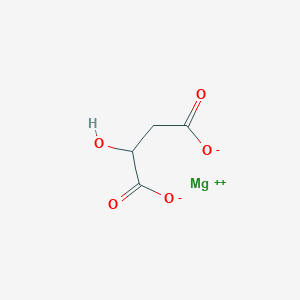
Introduction: Magnesium is an essential mineral that plays a crucial role in various physiological functions within the human body. It is involved in energy production, muscle and nerve function, bone health, and more. Magnesium chelates, compounds in which magnesium is bound to another molecule, are commonly used for supplementation to enhance absorption. Here, we explore different magnesium chelates and their recommended dosages.
1. Magnesium Oxide:
- Description: Magnesium oxide is a commonly used chelate due to its affordability and wide availability.
- Absorption: While magnesium oxide has a lower absorption rate compared to other chelates, it is still a viable option for supplementation.
- Dosage: Recommended dosages vary, but typical ranges fall between 200-400 mg per day. Individuals should be cautious of potential digestive discomfort at higher doses.
2. Magnesium Citrate:
- Description: Magnesium citrate is known for its high bioavailability, allowing for efficient absorption in the body.
- Absorption: The citrate form is readily absorbed, making it an ideal choice for those seeking quick magnesium supplementation.
- Dosage: Recommended dosages range from 100-300 mg per day, but individual needs may vary.
3. Magnesium Glycinate:
- Description: Magnesium glycinate is recognized for its gentle nature, making it suitable for individuals with sensitive digestive systems.
- Absorption: The glycinate form is easily absorbed and less likely to cause digestive discomfort.
- Dosage: Common dosages range from 200-400 mg per day, with the advantage of being well-tolerated.
4. Magnesium L-Threonate:
- Description: Magnesium L-threonate has unique properties that allow it to cross the blood-brain barrier, supporting cognitive function.
- Absorption: This chelate is specifically noted for its potential benefits to brain health.
- Dosage: Dosages may vary, but typical recommendations range from 1,000-2,000 mg per day for cognitive support.
Considerations:
- Individual Needs: Dosages should be tailored to individual needs, and consultation with healthcare professionals is advised.
- Dietary Sources: In addition to supplementation, magnesium can be obtained through magnesium-rich foods such as nuts, seeds, leafy green vegetables, and whole grains.
- Absorption Factors: Factors such as age, dietary habits, and health conditions can influence magnesium absorption and may impact dosage requirements.
Conclusion: Understanding the various forms of magnesium chelates and their dosages is essential for optimizing magnesium supplementation. Individuals are encouraged to consult healthcare professionals for personalized recommendations based on their health status and needs. Achieving an appropriate magnesium balance contributes to overall health and well-being.
